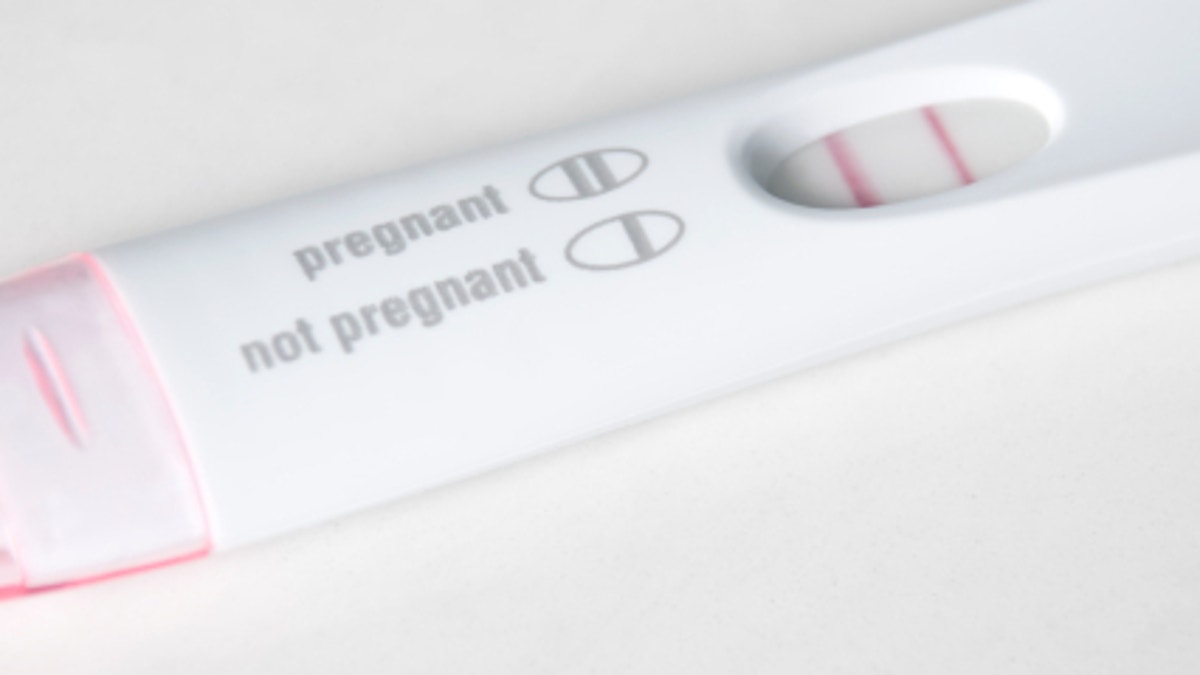
(Copyright (c) 2008 by Paul Velgos. All rights reserved.)
If you’re pregnant or recently had a baby, your hormones are wreaking havoc on your body and your mind. Here, find out what exactly six of the most important hormones are busy doing.
1. Did you see a plus sign on the stick? It’s the Human chorionic gonadotropin, or hCG hormone that’s detected in a positive pregnancy test. It’s also responsible for jump-starting all of the other pregnancy hormones in the body. Production of hCG starts at fertilization and levels rapidly rise until 10 weeks when they peak.
“hCG is the big hormone for why people feel so miserable at the beginning of the pregnancy,” according to Dr. Allison Hill, a board-certified OB/GYN in Los Angeles and one of the stars of Deliver Me on OWN.
As early as 8 to 10 days after fertilization, it’s common to feel symptoms like nausea and vomiting, aka “morning sickness,” fatigue, dizziness, breast tenderness, heartburn, constipation, and irritability. This hormone also causes the uterus to swell so you may already feel pressure on your bladder. Cammi Balleck, a naturopathic doctor and author of Making Happy Happen, recommends taking a hydrochloric acid supplement to help with the morning sickness, heart burn, and constipation.
2. Estrogen is actually a group of three hormones, and during pregnancy levels are approximately 100 times what they are during your period. Estrogen keeps the placenta healthy, and it allows your baby’s organs to develop. During pregnancy, estrogen can cause headaches and an increase in cervical and vaginal mucus production, which is why you may notice more than normal vaginal discharge.
After giving birth, estrogen levels decrease. If you’re breast feeding, levels will be suppressed even more and hot flashes, vaginal dryness, and a decreased libido are common. “We often tell patients their vagina is in menopause when they’re breastfeeding,” according to Hill, who is also the co-author of The Mommy Docs’ Ultimate Guide to Pregnancy and Birth.
The weaning process can also cause significant shifts in estrogen levels, so you might experience a host of symptoms and emotions. Yet when your normal menstrual cycle returns, your estrogen levels are back to normal. Balleck recommended taking a mineral supplement with calcium lactate, magnesium, and c-kelp at night which can help to balance your hormones, your mood, and help with fatigue.
3. Progesterone, aka the “pro-gestation,” hormone, prepares the uterus for implantation, makes it healthy for a successful pregnancy, and is essential for the growth and development of your baby.
During pregnancy, progesterone relaxes your joints and muscles and allows the pelvis to open up. It slows down the intestinal tract so acid reflux and constipation are common complaints. The hormone also increases your temperature to keep your baby warm, which explains why you’re always warm or have night sweats. After delivery, progesterone levels drop and don’t return to normal until you start ovulating and your normal menstrual cycle returns.
4. More flexible in prenatal yoga? Thank relaxin. Responsible for loosening the joints and ligaments in the pelvis, relaxin can also affect other parts of the body so you might be clumsy or more prone to falls or even experience pain in the lower back and in the wrists. Balleck recommended consuming vitamin e-rich foods or taking a supplement to ease symptoms -- but be sure to speak with your doctor first because too much vitamin e has been linked to stillbirth.
5. Known as the “bonding hormone,” oxytocin is what allows you to feel close to your baby. During labor, oxytocin causes the uterus to contract and helps to reduce labor pain. After delivery, it allows the uterus to return to its’ normal size and position. Oxytocin is also the hormone that allows your breasts to let down milk when you breastfeed.
6. Breasts tender? Blame it on prolactin. This milk-producing hormone causes the breast glands to develop and the structure of the breast tissue to change in preparation for breastfeeding. Prolactin increases up to 20 times more than pre-pregnancy levels and remains high until breastfeeding ends. Just like estrogen, prolactin levels dip during weaning as well, so expect some of the same symptoms.
Julie Revelant is a freelance writer specializing in parenting, health, and women's issues and a mom. Learn more about Julie at revelantwriting.com
